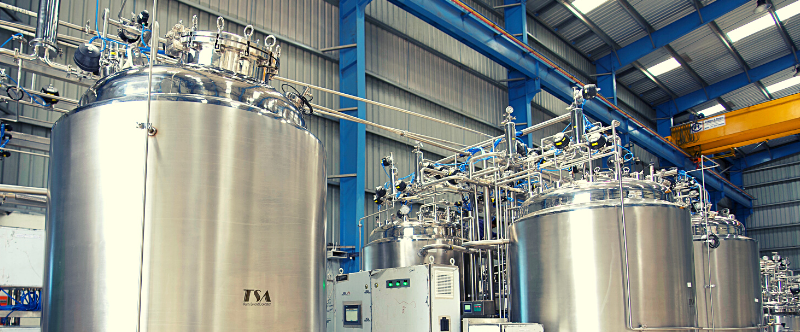The pharmaceutical industry plays a critical role in our healthcare ecosystem. The industry’s products affect the health and lives of large parts of the population and so to have people’s trust is a necessity, a privilege and a responsibility for pharma manufacturers. Expectations regarding the quality of pharma production are high, and justifiably so. And upholding people’s trust begins with where your products come together: pharmaceutical manufacturing vessels.
Pharmaceutical production and by extension, pharmaceutical vessels, must match up to high standards as per industry regulations. Pharma vessel manufacturers cannot compromise on safety and quality under any circumstances, especially since pharmaceutical manufacturing vessels are so critical to the entire drug production process. Here, we’re going to explore just how integral those vessels and tanks are to the success of your pharma manufacturing process.
What are pharma manufacturing vessels?
First things first: what even are pharmaceutical manufacturing vessels?
In the drug production process, there’s a multitude of equipment to understand. Amongst all this infrastructure, there are pharmaceutical vessels which are essentially tanks or containers – usually equipped with some controls or accessories – to carry out a step in the manufacturing process. With their main functions being storage (of raw and prepared products) and manufacture, pharmaceutical vessels come into the picture when there are liquids involved – be it purified water, other solvents, active pharmaceutical ingredients (APIs), injectables or oral liquids.
These vessels can be found in a number of shapes and sizes, are usually made of high quality Stainless Steel 316L, and offer a variety of functionalities including temperature and pressure control. In fact, such vessels are used across several industries including food and beverage, dairy, cosmetics, refineries and distilleries. In pharma, specifically, they are used in oral as well as parenteral drug departments with the purpose of mixing, separation, distillation, heating, cooling and purification amongst many other functions.
Pharmaceutical manufacturing is no easy task: the system is highly regulated and the processes must be highly monitored to control for the minutest of details. Automation is key to leaving no scope for error. This is why picking a pharma vessel manufacturer who can meet your specific needs is of utmost importance.
If you’re still not convinced about the essential role of pharmaceutical manufacturing vessels in your drug production plant, we have just the thing for you to read: a list of all the challenges that face drug producers (and pharma vessel manufacturers) and how the right pharmaceutical vessels can help you to control the process and take some of the load off your mind.
What challenges are you likely to face in the drug production process? What features of pharmaceutical vessels can help?
Purified water
Ultrapure water is used widely in pharma, whether it is on a small scale for laboratory research or on a large scale in industrial production. It is used as a solvent or a carrier medium, but also as a cleaning liquid. But handling this water is challenging, in terms of transport and storage.
In industries such as pharma which need sterile environments, methods like Intermediate Bulk Containers which are used for transportation of liquids in other industries cannot work. The water would lose its purity in transit.
High purity water is therefore produced on site, where it is held in large tanks which keep it free of undesirable impurities that could hamper the integrity of the chemical processes involved in drug production. From here, it is transported to other parts of the plant as it is needed in numerous processes.
The production of high purity water via distillation or reverse osmosis – as well as its storage – happens in specialised stainless steel tanks which are indispensable in the pharma industry. They help maintain the high sanitary standards for which there is absolutely no compromise (more on this below).
Pressure & temperature
The chemical reactions that make up the drug production process are highly temperature and pressure dependent. These extremely high pressure and temperature conditions cannot be met by your run-of-the-mill vessels.
Pharmaceutical manufacturing vessels like autoclaves are designed specially to withstand such environmental extremes. They create conditions that are just right for specific chemical reactions to occur as per plan and produce the desired product. Depending on the specific purpose you want to use a process vessel for, your pharma vessel manufacturer uses stainless steel of different grades, keeping in mind their strengths and weaknesses which stand to influence your final product.
Safety
So you’ve got yourself the pharmaceutical vessels that can produce and tolerate the desired temperature and pressure. But what about the safety of those using this equipment?
Safety is another aspect in which specialised pharmaceutical vessels have got you covered. Pressure vessels are equipped with a number of safety mechanisms. Manways are the means through which the users of the vessel access its controls or its contents. Targeted design measures are taken to ensure manway safety.
Safety valves, relief valves and rupture disks are all devices designed to prevent hazards. It is standard for safety valves to be rated at the same value as the vessel. In the case that the vessel’s pressure goes beyond its rated value, excess fluids are released by the opening of a safety valve. Conversely, when there is a decrease in pressure to return within the normal range, the vent closes.
Sanitary requirements
As we’ve mentioned earlier, hygiene and sanitary standards are non-negotiable when people’s health is at stake. And pharmaceutical manufacturing vessels are designed to ensure optimal hygiene, cleanability, and maintenance.
Dead spaces like corners, crevices and edges are a bane for anyone who is particular about maintaining hygiene standards. Pharmaceutical vessels are designed in ways that minimise dead spots, remove unevenness, and ensure the smooth movement of fluids within the system, keeping things sterile all through.
The lowest point of the tank ordinarily contains an outlet or a drain so that the container can be emptied out completely. These outlets are designed to withstand the vessel’s pressure and eliminate chances of leaks.
Finally, pressure vessels and other high quality pharmaceutical manufacturing vessels come with CIP and SIP integration (cleaning-in-place and sterilisation-in-place). These mechanisms allow the equipment to be cleaned and sterilised from the interiors without needing to disassemble it. Not only does mechanisation ensure that these process equipments have been completely decontaminated, but it also saves a lot of time which would otherwise have been lost is taking apart and reassembling the equipment for cleaning and maintenance purposes.
Standardisation
The pharma industry uses formulation vessels in drug production. But just as each drug is unique, each formulation vessel also needs to account for these unique requirements.
To make sure that the process yields just the right mix of APIs, stabilisers and other ingredients, pharma vessels are fitted with components like agitators to generate the specific conditions required.
High precision is of utmost importance, as is repeatability. The system needs to produce the most precise doses with the most precise proportions again and again; quality must remain unchanged across batches. It is for such standardisation that formulation vessels are indispensable.
Durability, sustainability and corrosion resistance
Whatever the quality requirements of your specific pharmaceutical process, ultimately, cost is a practical concern that we can’t overlook. It can be tempting to opt for something cost-effective considering the capex limitations you’re working with, but investing in the right pharmaceutical manufacturing vessels can mean years and years of effective drug manufacturing processes which yield the same high quality products time and again.
Stainless steel is durable so your pharma vessels are guaranteed to last a long time. The material is recyclable, low maintenance, and corrosion resistant, which means it will be a long term partner to you in your journey of sustainable pharma manufacturing.
It’s safe to say that pharmaceutical manufacturing vessels are critical to the drug manufacturing process. It is impossible to achieve the high quality and hygiene standards required without a smart investment in pharmaceutical vessels. Right from the project engineering phase and production, right up to quality control and product delivery, the correct process vessels will be your friends – taking on the responsibilities of precision, safety and hygiene so that you are free to focus on other pressing matters to grow your business.





